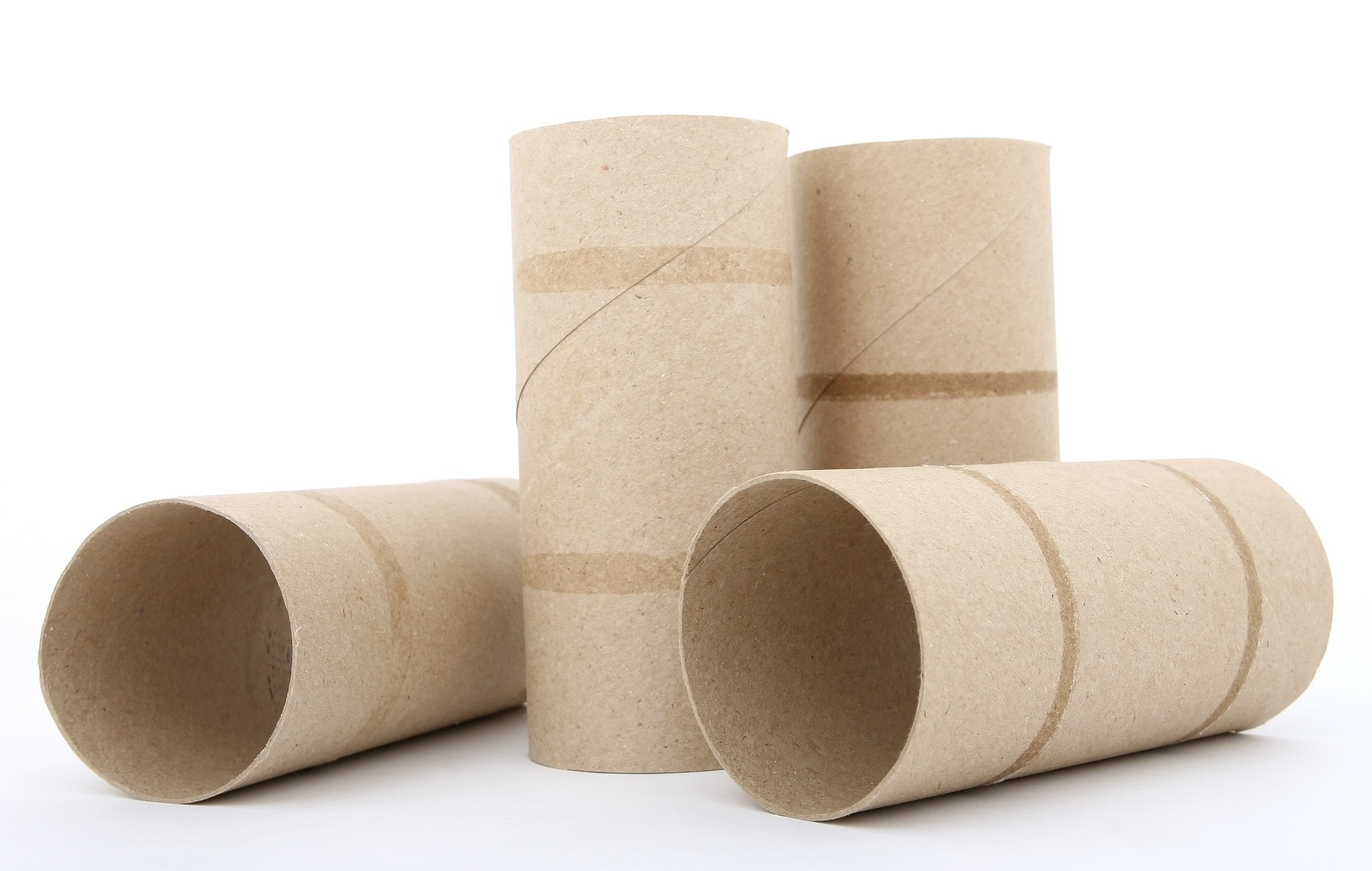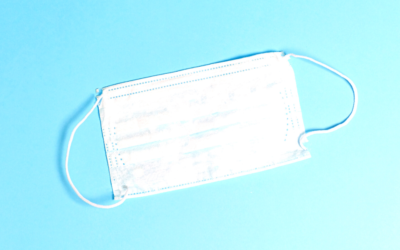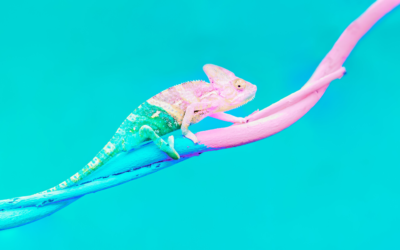What’s normal when it comes to potty training and Down syndrome?
There is very little research that’s been done that tells us what’s normal when it comes to potty training and Down syndrome. Here’s what we do know:
Studies from the 1980’s indicated that most children with Down syndrome were staying dry day and night by age 4or 5.
More recent studies (from the mid-1990’s) found that only 35% of kids with Down syndrome were daytime trained by age 4, and that at age 11, 1 in 3 was still enuretic (having urinary accidents during the day).
For the comparison’s sake,neurotypical kids are now usually daytime potty trained by 36-39 months old. In the 1950’s, most neurotypical kids were potty trained by 24 months, with girls training on average 2.5 months earlier than boys.
The results of most studies looking at age of potty training in kids with Down syndrome indicate that these children follow a typical developmental and gendered pattern (with girls potty training slightly earlier), the only difference being that they train on a delayed timetable.
You can read this study for more info.
What works best when it comes to potty training and Down syndrome?
here are no studies that have researched potty training methods for kids with Down syndrome. At least, none that I can find; if you’re aware of any, please let me know about them!!
There are some longitudinal studies that just observe and describe what’s ‘normal’.
There are studies that use potty training age as a marker for other measures, like quality of life for kids and parents.
But there are no studies that just look at best practices and effectiveness of different methods of potty training.
I highlight this to point out two things:
You are a complete champ, because you’re undertaking a tough challenge, and you’re doing it without a ton of support or experts sharing ‘lessons learned’ with you. It strikes me as so backwards that the academic community tends to ignore challenges like this, the ones that real families are struggling with consistently.
I don’t know a single parent of a child with Down syndrome who says their child potty trained easily, or overnight, or with no real intervention from parents. Yet, I’ve never been able to find a single study that’s been designed to help parents know the best practices when it comes to potty training a child with Down syndrome. This speaks to a much larger problem, of course, but suffice it to say that what you’re about to do is akin to building a plane while it’s inflight, and I salute you, because I know it won’t be easy.
Also, you should realize that, because there’s no research that’s ever been done,
Any advice or opinions that you can find on the topic are just that, advice and opinions. That of course includes this guide.
The only advantage you’ll find here is that I can speak from the experience of having worked with many children with Down syndrome learning this skill, versus just the experience of parenting one unique child and knowing their specific challenges and strengths. But to be clear, this isn’t a scientific, evidence-based guide, it’s rooted only in my clinical experiences counseling parents raising kids with disabilities like Down syndrome.
Is your child with Down syndrome ready to potty train?
This is a difficult thing to assess,because if you’ve met one kid with Down syndrome, you’ve met one kid with Down syndrome.
Each child may show different signs of readiness, starting in different orders, and with varying levels of intensity. Below are a few key signs that your child may be ready to start potty training.
- Shows interest in personal hygiene (washing hands, brushing teeth) and self-care (dressing, taking medications/being healthy)
- Shows interest in others’ toileting behavior
- Completely empties bladder when urinating and stays dry for at least an hour to two hours (look for a solid stream of urine as a sign that your child has some muscular control over emptying their bladder)
- Has bowel movements that follow a regular and predictable pattern
- Notices when diaper or clothing is wet or soiled.
- Communicates the need to go to bathroom through facial expressions, gestures, visual aids, or words
You don’t need to wait for your child to demonstrate all of these signs. What you’re looking for is for them to have an interest in using the toilet, a somewhat consistent toileting routine,and physical awareness of their own ‘need to go’.
You may notice that this list omits a few key signs of readiness that are included in other similar list.
If you google potty training and Down syndrome, you’ll likely come across similar lists of readiness that include a lot of gross motor functions, such as:
- Can walk to the bathroom independently
- Can undress from the waist down
- Can balance well enough to get onto the toilet/sit on the toilet for up to 5 minutes
Based on my reading of the available research and my own clinical experience, I don’t include these functions on a list of signs of readiness. The reason is that, developmentally, success in potty training is often more closely aligned with the ability to communicate one’s own thoughts and needs than it is with these gross motor functions. See this article for more detail. Potty training success is much more closely correlated with the ability to communicate the need to go than it is with the physical ability to get to the bathroom and onto the toilet.
For this reason, I focus on interest, physiological development (voiding urine completely and regular bowel habits), and communication of internal experience in my list of signs of readiness.
There’s another thing that I find is often lacking from these lists; signs of parental readiness!
Are you ready to potty train your child with Down syndrome?
As important as it is that your child be ready for potty training, it is just as important (if not more so) that YOU be fully prepared when it comes to potty training. If you have a partner you’re raising your child with, you must both be on the same page. This means that you are ready for:
Accidents. Yours and your child’s. You won’t communicate something concretely and your child will misunderstand.
Your child will of course have accidents. Accept that they’re coming before they happen, so that you can welcome them as part of the process (and not a sign that something’s wrong)when they do.
Setbacks. It is quite common for people with Down syndrome to experience regression in previously mastered skills when they are experiencing an emotional difficulty, such as grief or depression. You might see, for example, that the death of a beloved grandparent leads to an ‘unlearning’ of potty training. This does not mean that your child has forgotten this skill, or that they never really learned it. What it is is a common expression of a symptom of emotional unrest that deserves attention, possibly from a trained therapist, to help resolve. Once the difficult emotions are dealt with, your child will resume their previous toileting routines and abilities in the blink of an eye.
Tears. Your child may cry. You most certainly will.
Messes. Your child may be older and bigger than the average kid who is potty training. Potty training will probably take longer for your child than for the average kiddo. Do the math; the messes will be bigger and they will last longer. Are you ready for that?
Being late. Your kids WILL pick the most inopportune time to want to sit to poop or to have a pee accident. This probably means that you’ll be late to some activities while you’re in this phase. I recommend giving yourself a15-minute buffer ahead of important appointments, to allow time for potty training related mishaps to happen. So, if you really need to leave the house by 4:15pm, while you’re potty training, tell everyone you need to leave by 4pm. Inevitably, that time will get used!
Spending more money than usual on clothing and cleaning products.See accidents and messes, above.
Laundry. Loads and loads of laundry.
Keeping it fun.
I can hear you thinking…WHAT?!?!?! After all of these difficult things you’ve told me to be expect, you want me to find this fun?!
Let’s look at what we know.
The evidence suggests that most kids with Down syndrome will eventually potty train.
Especially if you’re reading along and seeing that your child is showing signs of being ready, it is most likely that your child will one day be potty trained.
So, you get to decide what it will feel like as you get to that point. It can be constant stress, gritted teeth,and cursing every accident. It can be confusing and overwhelming for your child, leaving them feeling that they’ll never succeed, at using the toilet or anything.
Or, it can be just one more thing that your child gets to prove they can do when no one thought they could. It can be something you reflect on one day, marveling at the patience and compassion you learned to give your child as they tackled this challenge and overcame it.
My hope for you and advice to you as you undertake this challenge is that you be good to yourself. Not Instagram good, but genuinely, soul nourishing-ly kind and patient with yourself. If you can be that kind of good to yourself, it will come naturally to be gentle with your child as they learn this truly complex new skill.
So stay light, laugh, and watch for the tiniest signs of success in your child. Because the research tells us you’ll probably wind up in the same place anyway. Might as well approach it with confidence and good humor.
It doesn’t matter if your child is demonstrating all the signs of readiness. If you’re not ready, then it simply isn’t the right time for your family for you to undertake potty training your child.
Give it the weeks or even months that you need to get other things in order. Your child will still be ‘ready’ once you are.
Know what the challenges will be
Using the bathroom is an abstract concept
People with Down syndrome thrive when information is presented clearly. Understanding how to read your internal bodily cues about the need to urinate or have a bowel movement is a pretty abstract thing. So is sitting on the toilet and doing your business if you’ve never seen anyone do it before (more on this in a bit).
To combat this, you can use this silly trick. Make a fist, and pretend your hand is a mouth that ‘eats’ some playdough. Then, have your child help you ‘use your belly muscles’ to push out the poop. Allow your child to squeeze your hand with theirs, in the process pushing a tube of playdough out of your fist and into the toilet.
Kids love the silliness of this, and it gives them a visual connection between using muscles and poop falling into the toilet.
Regression
As discussed above, regression and loss of toileting skill may occur for reasons totally unrelated to potty training. These include anxiety, grief, or other physical illnesses or discomforts. Do your best to view this as an expected part of the process,rather than a startling setback when it happens.
Hypotonia
People with Down syndrome frequently have Hypotonia, or low muscle tone, throughout their bodies. This means that it can be very physically difficult to for them to use their pelvic floor and colon muscles to hold in their urine or bowel movements, leading to frequent accidents.
Certainly, staying active is important to develop muscle tone. But, it’s important to be aware that people with Down syndrome are also likely to have ligament laxity, which basically means they’re prone to having loose joints. This can cause serious problems like pain, dislocation, and strains if they become injured. For this reason,high impact sports and activities should be skipped in favor of low impact exercises, such as yoga.
Hirschprung’s Disease
Hirschprung’s disease is a disorder that’s relatively common in people with Down syndrome. The disorder makes it difficult to predict bowel movements, as nerve cells are missing in a child’s bowels that would usually be responsible for letting them know when it’s ‘time to go’. Usually cells are missing just in the rectum and the sigmoid colon, but in rarer cases there are no nerve cells all the way up through the intestine,and stool will stop there causing blockages. 1 in 100 kids with Down syndrome also have Hirschprung’s disease, a rate much higher than what we see in the general population (that rate is 1 in 5,000).
Whenever I teach a workshop on this topic, I often get asked by parents of kids with Down syndrome if their child might have undiagnosed Hirschprung’s disease. The answer is “probably not”. The first symptom of the disorder is usually a newborn’s inability to have a bowel movement in the first 48 hours of their life. Accompanying symptoms include vomiting, a swollen belly, or constipation. Typically, a rectal biopsy is then conducted which that identifies Hirschprung’s disease as the root cause. It is possible that a child might not have this diagnosed in infancy, however, a physician treating a child with Down syndrome reporting difficulties with toileting would almost surely order an X-ray or biopsy to test for this condition. Of course, if you think your child’s toileting troubles might have an underlying medical cause that hasn’t been identified, you should discuss this with their physician.
What to actually do
Modeling
Remember when I said that using the bathroom is an abstract concept? It’s just going to be easier for your child to understand what’s expected of them if you let your child watch you go to the bathroom. More than visual schedules or videos, allowing your child to sit with you and describing to them what you’re doing is going to help them understand what to do.
Make it as physically comfortable as possible for your child to go as possible
Depending your child’s age and size, they may like to use a child’s toilet like this one:
If they’re larger/older, they may like to skip this step and go straight for the toilet, perhaps with a padded ring such as this one for comfort:
I’m a big fan of the Squatty potty for potty training kids, as this will help them to get into the best physical position to make having a bowel movement as easy as possible.
Eat a proper potty training diet
This makes it as physically easy as possible for your child to use the bathroom regularly and without pain. Ensure that your child is drinking plenty of water and eating lots of fibrous foods as you prepare for potty training.
Keep a toileting diary
Knowing your child’s toileting routine will help you in two ways. First, it can help you assess if your child is ready by knowing if they’re having regular bowel movements and if they’re fully voiding when urinating and/or going an hour or more without urinating.
This diary will also help you by allowing you to encourage your child to go to the bathroom not just when they recognize the urge to go, but at times that they typically have to go based on your tracking. This can help you to avoid lots of clean up down the road.
You can use a paper and pen diary, or you can use an app to try to learn the times of day your child goes most often.
I encourage you to actually keep a physical rather than mental record. This is because it’s easy to be mindful of times that your child has to go that affect your family routine (needing to poop when the school bus is pulling up, anyone?). But, you may not notice those times that your child routinely goes that aren’t impacting your family’s activities.
Nakedness is your friend!
Of course, I can hear you asking, how will I know when to mark in the diary that they’ve gone to the bathroom if they’re wearing a diaper?
The answer: by allowing your child to be naked (at least from the waist down) as much as possible while potty training, but especially when you are charting their daily toileting habits.
There are other reasons that this makes sense. It will be easier for your child to notice only the sensation of needing to urinate or defecate if they aren’t also noticing sensations of too tight shoes, or a shirt that smells like grandma’s laundry detergent, or whatever.
Use the right words
The big culprit here is “pull your pants down”. If you think about what you do when you use the restroom, you don’t pull your pants down, you push them down. It seems like a minor thing, and you may presume your child won’t even notice the difference, but you want your child to feel 100% confident in what they’re doing. Make sure everyone in your family is consistent in their language.
Teach the right times to go
Reinforce to your child that you don’t just go when you need to, you also go when it makes sense to go.
Use the charting you’ve done to predict when they’ll need to go, and encourage them to use the bathroom at those times. You can say “your body likes to go pee/poop at this time most days, so, it makes sense to try to go to the bathroom now.”
There are other common times to teach your child to go because it’s time to go, and not just because they feel the urge to go. These include:
- Upon waking
- Before/after car rides
- Before/after meals
- Before going somewhere where bathrooms are difficult to get to (such as a playground)
- Immediately before bedtime
Praise success (the right way)
The best praise doesn’t sound like praise at all. It sounds like observation, you just reflecting to your child what you see, hear, or otherwise observe.
You put your pee in the potty!
I hear you going poop!
What you want to avoid is saying things like:
Oh, you’re such a big girl for using the potty. I knew my good girl could do it, great job!
The problem with praise like this is that it sets your child up to doubt themselves in the future. What happens when they have an accident? Are they no longer your good girl? Are they not a big girl? Did they not do great?
The issue is that this kind of praise is dependent on your judgement of whether your child did something well or not. What you want (what we all want) is for our kids to develop their own, strong inner voice that gives them all the praise they need.
So, when you observe what you see or hear, rather than giving typical, judgement based praise, you give your child the opportunity to fill in the blanks. If you say ‘You put your pee in the potty!’ your child will be able to say all sorts of wonderful things about themselves “I’m getting it!” “I did it!” “I’m a potty training Jedi master” or whatever they want.
You may think this is at odds with some traditional wisdom, which preaches sticker charts, potty dances, and treats in exchange for proper pottying. Read on to see why I don’t recommend lavish praise or rewards for kids with Down syndrome who are potty training.
What I don’t recommend
Lavish rewards, reinforcement schedules, and praise
I know how busy your life is. I also know how important consistency is to helping kids with Down syndrome learn. Can you REALLY commit to months or even years of always keeping to the reinforcement schedule? Having the M+M’s or stickers on hand, printing out the charts, training the babysitters and Grandparents…it’s exhausting just thinking of it!
Of course, you’re the parent, and you know your child best, and you can choose to reward however you want.
But I will give you this to consider. Learning to use the toilet is a challenge and important milestone for any kid. It is also one of the first of many critical life skills that you will teach your child. Do you really want to set up the expectation that learning and skills development will be followed by a treat of some kind?
It may seem adorable when your four-year-old will do anything for that Toy Story sticker. But imagine that your child is 25 years old, weighs 150+ pounds, and is insistent that they deserve a reward for cleaning their room, doing their laundry, balancing their checkbook. Suddenly they are getting agitated that they aren’t being rewarded, and are threatening to harm something or someone. Not so cute anymore, is it?
Potty training isn’t just about learning to use the bathroom. It’s setting up expectations of learning that your child will carry with them into adulthood.
I have worked with many, many older adults with Down syndrome who were give lavish rewards for potty training or other early childhood milestones, and who now struggle with getting praise and rewards that don’t meet their expectations. Aside from the confusion and frustration that this results in, I have worked with several clients who have become violent when caregivers try to change the expectations on them as adults. I’m sure that isn’t the future you want for your child.
Plus, we know that potty training kids with Down syndrome will typically take longer than potty training neurotypical kids. We also know that kids with Down syndrome have different metabolic needs, and are prone to weight gain. I think you know in your heart of hearts that even one M+M every.single.time they use the bathroom is not what’s best for your child. Even if it does do the trick in the moment.
My final plea here: If you feel you must commit to a reward schedule, I urge you to work with a behavioral specialist to develop this. This kind of professional can help you formulate a plan to ensure that you’re strategically removing rewards appropriately, so that you don’t set up unrealistic expectations for your child’s adulthood.
That being said, I do firmly believe that it’s possibly to communicate to your child authentically how proud you are of them without giving them a single piece of candy, a sticker, or a toy of any kind. Just reread that bit on observational praise, and you’ll be all set.
Pull ups as underwear
There are diapers and there are underwear. Pullups are diapers. Your child with Down syndrome cannot differentiate between a pullup and diaper. When you and your child are both ready to start potty training, ditch the diapers in all forms.
Asking ‘Do you need to go?’
They will say no. Every time. Instead, communicate to your child “It’s time to go the bathroom because we’re about to drive to church” or “Because your body usually wants to go poop after dinner, it’s time to go sit on the toilet and try to poop.”
Power plays and potty training
Using the bathroom is a common source of power struggles for kids with disabilities. It may suffice to avoid being the one telling your child when to go to the bathroom. You can use a watch like this one, which is set to vibrate at certain times of day, to be your child’s non-verbal prompt to potty.
But, if your child is still using toileting as a power play, my advice to you is to quit potty training temporarily.
If your child hasn’t fully toilet trained the last 7 or 9 or 11 or however many years, taking one year ‘off’ from potty training that isn’t working isn’t going to hurt anything.
In fact, it has a better chance of helping you reset: your child’s expectations, your frustration, your family’s learned habits and routines around toileting. Taking as much as six months or even a year fully away from potty training, and just going back to diapers, can be a blessing for the entire family. It isn’t a step back; it’s a getting a stronger footing to move forward from.
I hope you’ve found this helpful! If you did, please share it with other potty training parents of kids with Down syndrome!








